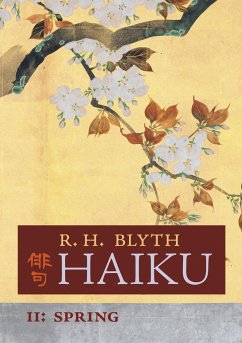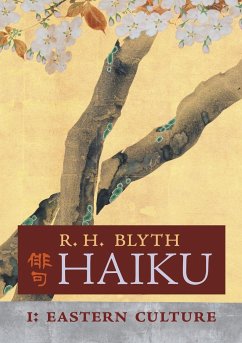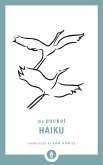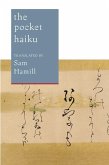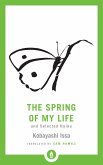Reginald Horace Blyth (1898-1964) was a prime mover in the popularization of haiku and Zen philosophy in western culture. Born in England, Blyth spent most of his working life in Japan, where he acted as a professor of English and foreign liaison, and became a great admirer of Japanese poetry. Long considered by haiku enthusiasts an essential resource for English-speaking readers, Blyth's four-volume haiku anthology is a testament to his love and deep understanding of this singular art form. Presenting the best work of Japan's haiku masters alongside his own lucid commentary, Blyth's volumes communicate the true meaning and spirit of haiku in a way rarely accessible to western readers. The first of the seasonal volumes, Haiku Vol. II (Spring) contains some of the most iconic and beautiful haiku ever written, organized by such classic topics as life and birth, the new year, landscapes, elements, flowers, and nature gods.
Hinweis: Dieser Artikel kann nur an eine deutsche Lieferadresse ausgeliefert werden.
Hinweis: Dieser Artikel kann nur an eine deutsche Lieferadresse ausgeliefert werden.

